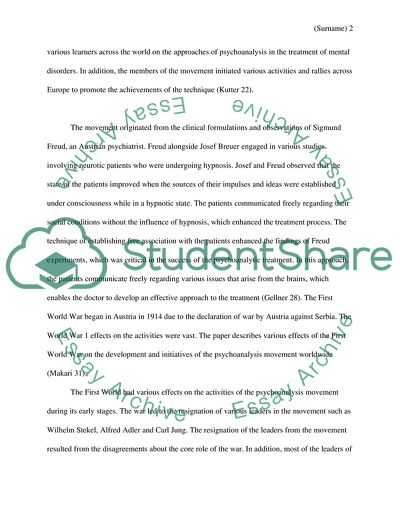Cite this document
(Effect of First World War on the Psychoanalytic Movement Essay Example | Topics and Well Written Essays - 1250 words, n.d.)
Effect of First World War on the Psychoanalytic Movement Essay Example | Topics and Well Written Essays - 1250 words. https://studentshare.org/psychology/1853786-what-effect-did-the-first-world-war-have-on-the-psychoanalytic-movement
Effect of First World War on the Psychoanalytic Movement Essay Example | Topics and Well Written Essays - 1250 words. https://studentshare.org/psychology/1853786-what-effect-did-the-first-world-war-have-on-the-psychoanalytic-movement
(Effect of First World War on the Psychoanalytic Movement Essay Example | Topics and Well Written Essays - 1250 Words)
Effect of First World War on the Psychoanalytic Movement Essay Example | Topics and Well Written Essays - 1250 Words. https://studentshare.org/psychology/1853786-what-effect-did-the-first-world-war-have-on-the-psychoanalytic-movement.
Effect of First World War on the Psychoanalytic Movement Essay Example | Topics and Well Written Essays - 1250 Words. https://studentshare.org/psychology/1853786-what-effect-did-the-first-world-war-have-on-the-psychoanalytic-movement.
“Effect of First World War on the Psychoanalytic Movement Essay Example | Topics and Well Written Essays - 1250 Words”. https://studentshare.org/psychology/1853786-what-effect-did-the-first-world-war-have-on-the-psychoanalytic-movement.


